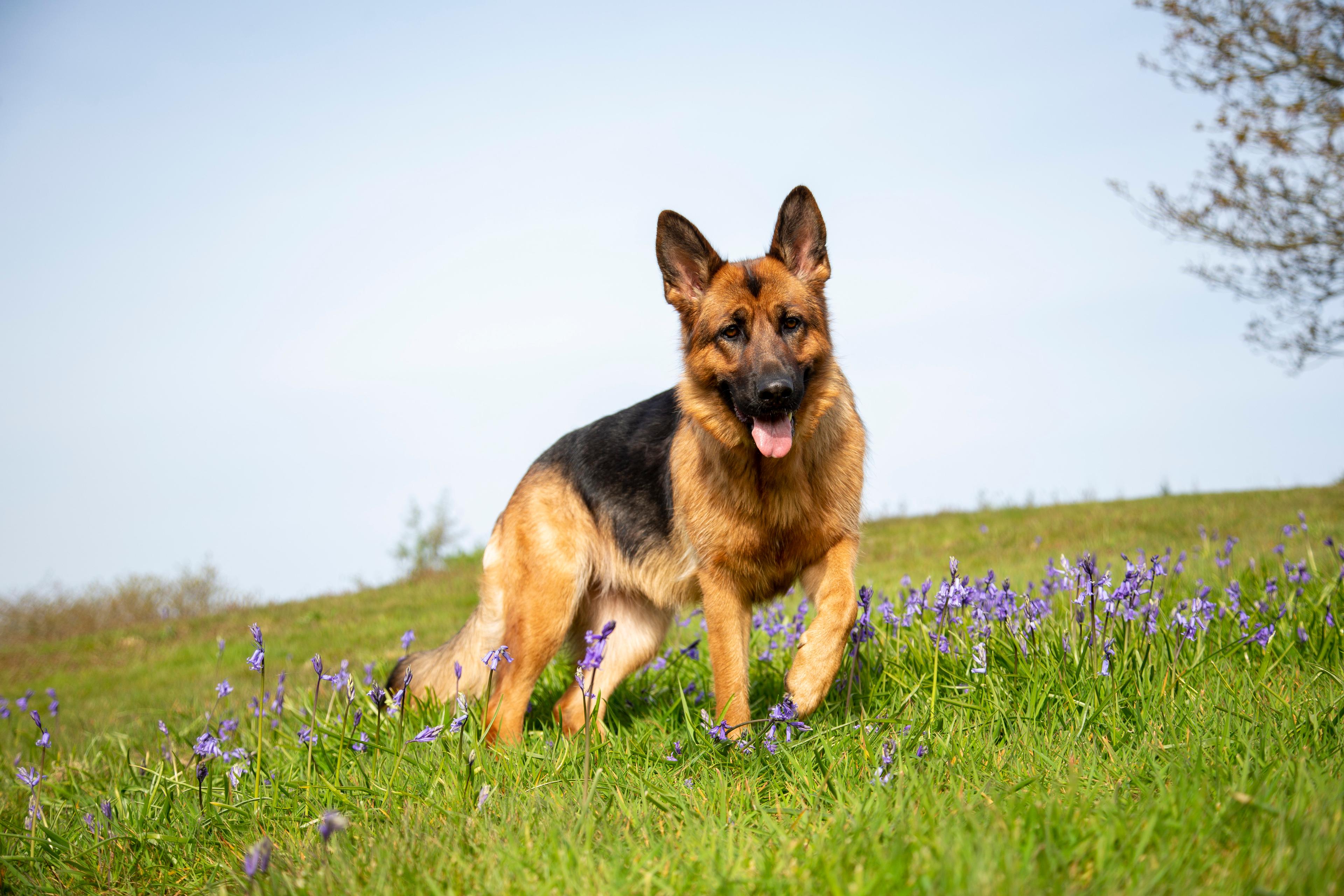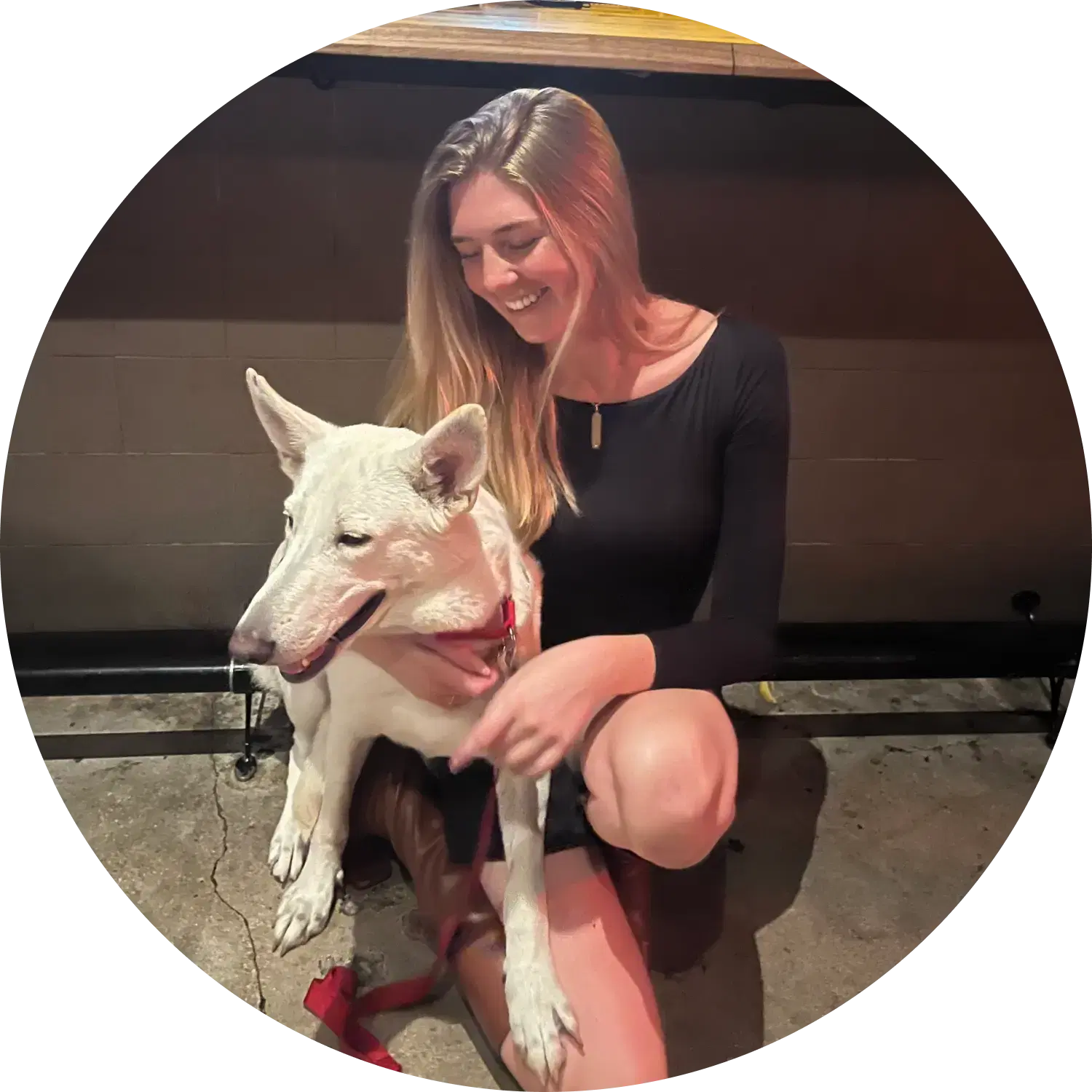Dogs seem to have a talent for getting into trouble, especially when they poke their noses where they shouldn't—like into an ant hill. And your daily walk then turns into a miniature battle scene. But you can understand the struggle your dog would be going through. At least you can scratch any part of your body. Imagine your dog struggling with an ant bite on the tail or near it.
That’s again something you can help your dog with. But are ant bites only an issue for 2 minutes for your dog, or can they cause bigger problems? We’ll answer this for you in this article.
Flea, ticks and mosquitoes have been known by most pet parents to cause problems for dogs. Ants are often ignored. Maye because most ant species are harmless to you and your dog. But some can cause problems. The list includes – (2)
Fire ants – The reddish-brown creatures are very aggressive when disrupted.
Harvester ants – Found typically in the south-west of the US, they are capable of killing small animals like rats and mice with their venomous sting. For dogs, the stings can be very painful.
Leafcutter ants – These won’t bite humans or dogs unless threatened but can cause a lot of pain if stung.
Carpenter ants – Large in size, these again won’t bite unless threatened. And dogs do not tend to bother them. But if bitten, it can be painful.
Apart from pain, ant bites can also cause infections and allergic reactions which can call for an emergency in dogs. This is why it is important to when your dog has been bitten.
What do Ant Bites Look Like on a Dog?

Ant bites on dogs look just the way they look on us humans. Usually, a small, puss-filled itchy bump on the bitten area will develop. Other symptoms to look out for are –
Red-swollen bumps
Your dog itching or licking the affected area
Limping in case of pain in one of the paws
Anxious or frenzied behavior in case of multiple bites
While these are symptoms of mild ant bites on your dog, some allergic dogs can show more severe ones. The ant venom or saliva can trigger the allergy in some dogs causing generalized inflammation that can affect multiple areas of the body. Signs that your dog is having an allergic reaction are – (2)
Generalized redness of the skin
Hives
Swelling of the face or muzzle
Vomiting
Diarrhea
Labored breathing
If you see one or more of these signs, you must take your dog immediately to a vet.
What Happens if My Dog Gets Bitten by an Ant?

Ants, depending on the species, are capable of stinging or biting (or both), and the impact can range from a 2-minute discomfort to potentially life-threatening. Ant bites on the face or nose can cause a big problem as swelling there can block the airways causing difficulty in breathing.
If your dog is anaphylactic, i.e., allergic to ant saliva or venom, the reactions may include vomiting, weakness, respiratory distress, pale gums, and even collapse in some cases. (1)
How Do You Treat Ant Bites on Dogs? (1)

If you’ve seen your dog play in the backyard in a place where anthills are often found, start looking for the red-patchy bumps. Check the hard-to-reach areas like between the toes, ears, and eyes. Remove any ant if you see it crawling on your dog’s body. If you see a fire ant, you need to be more cautious. Move your dog to a safe place. You can use a pair of gloves to protect yourself and then brush off or pick the crawling ones.
Observe your dog for any signs of discomfort. In case you see any of the symptoms of an allergic reaction mentioned above, contact your vet. Do not administer any human medicine like Benadryl, or diphenhydramine without consulting with your vet. Your dog may even need hospitalization in case of an allergic reaction.
An Elizabeth collar can help stop your dog from licking or biting the wound as it can delay the process of healing. Do not use any human insect repellent on your dog. You can get special ones made for dogs. The oil form of citronella, lemongrass, and cinnamon can all be applied as an insect repellent on dogs. But again, we would recommend talking to your vet first.
How Long Do Fire Ant Bites Last on Dogs?

If your dog is acting normal, there is a high chance that only a few fire ants have stung. Within 24-72 hrs. the wound should heal in that case.
The best way to treat ant bites on your dog is to prevent them. Check your yard for any ant mounds. Keep outdoor baits outside the home because they attract ants. Clean any food or drink spills. Keep food, especially dog food, in tightly sealed containers.
More About Spot Pet Insurance
The smallest of things can cause the biggest problems at times. And during such times, we wouldn’t want you to not be able to give your pet the best care because of financial stress. Vet bills, medications, hospitalization, etc. can put a big dent in your savings at times. With pet health insurance, you can save up to 90% of the costs and much more.
Dog Insurance can help provide financial assistance for eligible veterinary care in case of unexpected accidents, illnesses, or injuries. Our plans can help pet parents manage the eligible costs of covered veterinary care and help ensure that their pets can receive the best treatment possible. Here are some ways that Spot pet insurance plans can help:
Covers Unexpected Veterinary Costs: Spot pet insurance plans cover the eligible costs of unexpected veterinary treatments, such as emergency surgeries, X-rays, and prescription medications for covered conditions.
Customizable Plans: Choose your annual limit, reimbursement rate, and deductible from a range of options, and create the plan that will fit the needs of your pet and your budget.
Peace of Mind: With Spot pet insurance plans, pet parents can know that they can provide the best care for their pet with less worry about the cost.
To learn more about Spot Plans or to get a free quote, click here.

The resident animal enthusiast at Spot. I have a lifetime of pet parent experience. If it has fur, feathers, or scales, I’ve probably shared my home with it. I aim to be a reliable source, blending experience with a dedication to the well-being of pets.
PetMD Editorial. (2022, August 25). Ant bites on dogs: How to identify and treat. https://www.petmd.com/dog/parasites/how-identify-and-treat-ant-bites-dogs
Barnette, C., DVM, & Barnette, C., DVM. (2024, June 7). Ant bites on dogs: How to identify and treat them. Great Pet Care. https://www.greatpetcare.com/dog-health/ant-bites-on-dogs/












